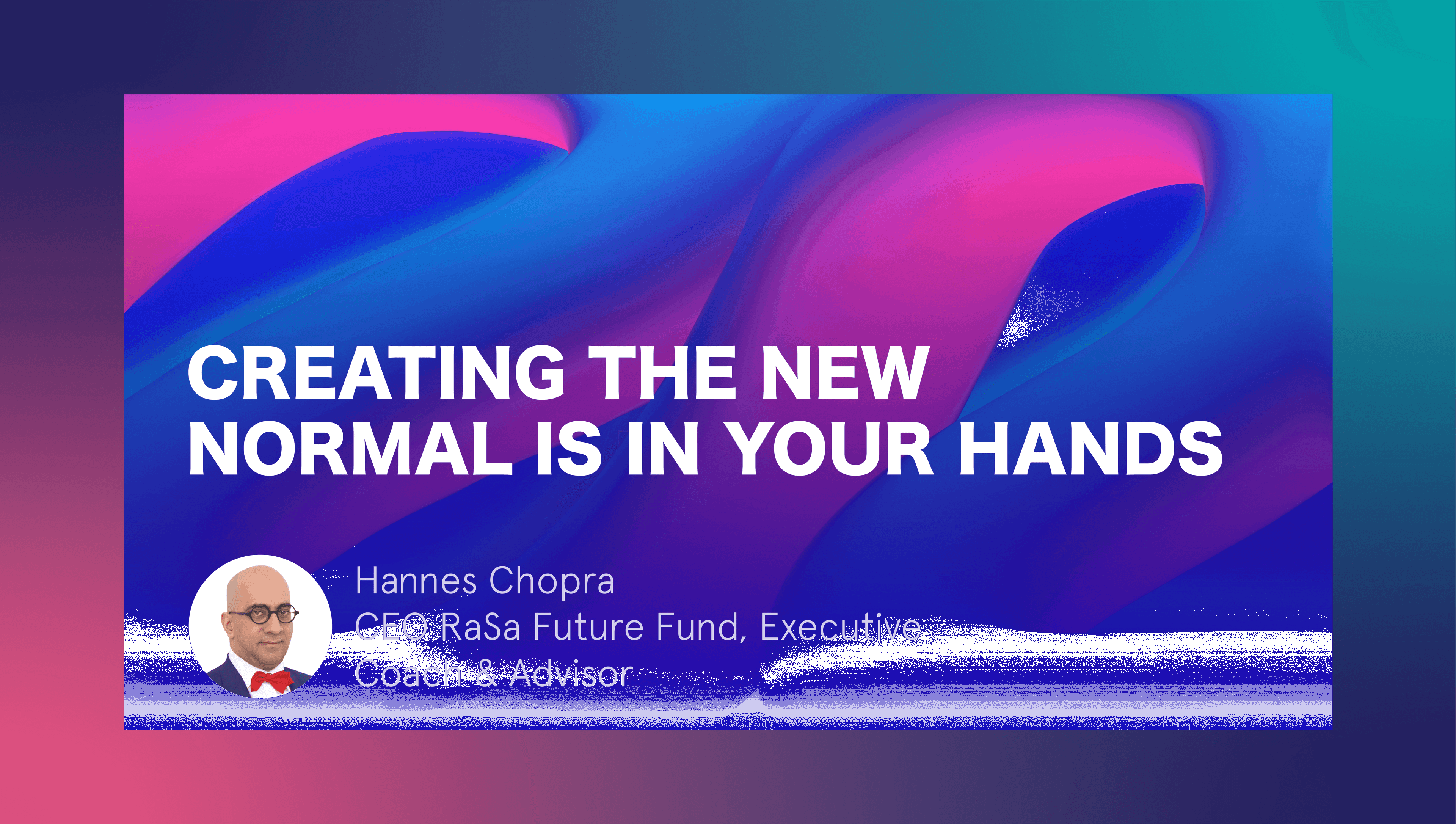Creating the New Normal Is in Your Hands
We are all thinking about it, we are all experiencing it, and we all have questions. The COVID-19 Pandemic and its effects on the world’s personal, social, and political norms was one of the most impactful events in recent history. But what does that say about us as a society? And more importantly, where do we go from here?

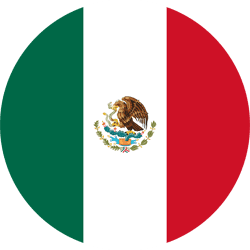
Writer at Harbour.Space University
We are all thinking about it, we are all experiencing it, and we all have questions. The COVID-19 Pandemic and its effects on the world’s personal, social, and political norms was one of the most impactful events in recent history. But what does that say about us as a society? And more importantly, where do we go from here?
It all started with a pandemic. One small virus brought the world to a standstill. Within months, borders closed, companies went bankrupt, and people lost jobs and more. The pandemic was a massive shock to the economy leading to a severe economic crisis.
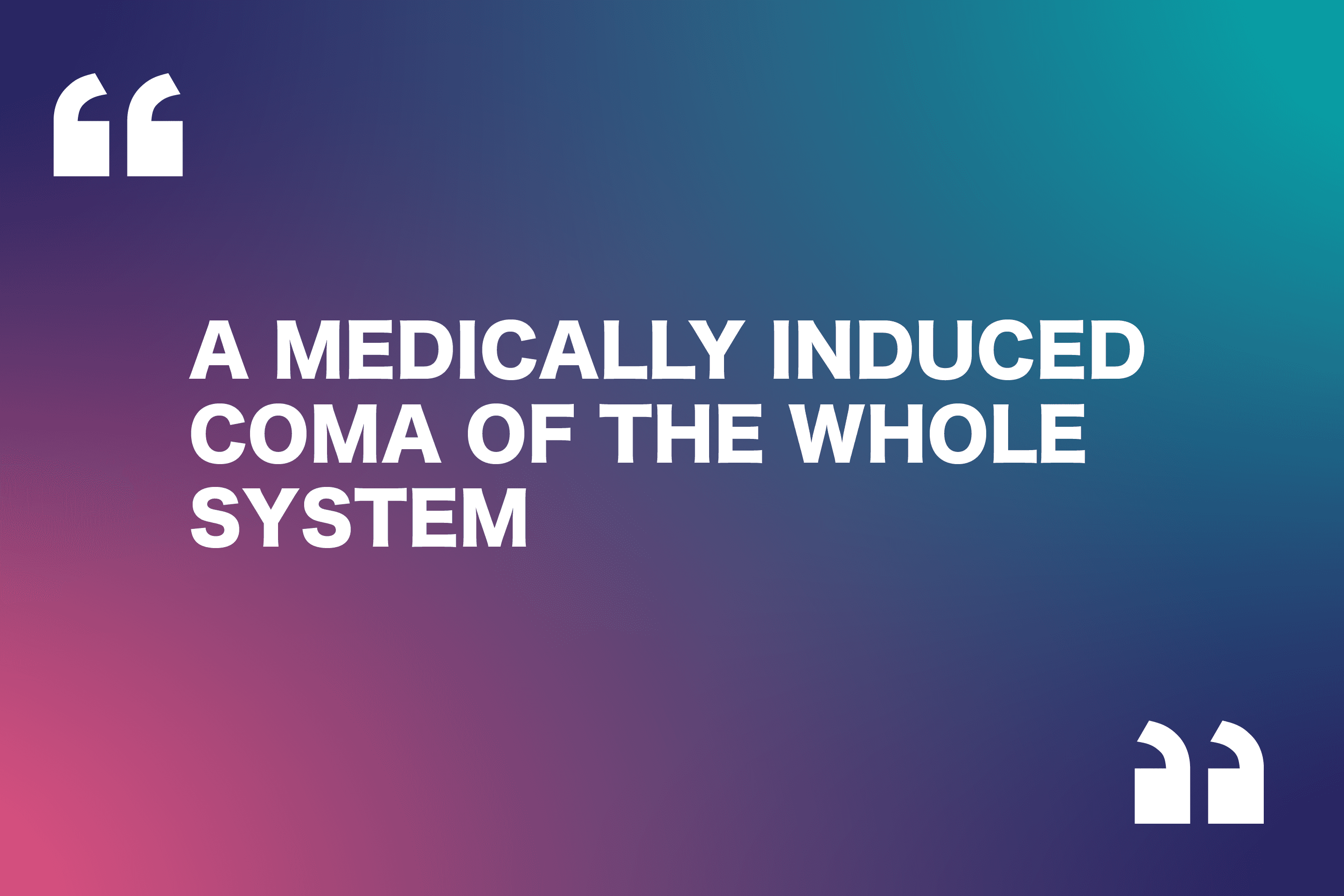
"The global pandemic worked like a medically induced coma of the whole system," said Hannes Chopra, CEO of RaSa Future Fund, Partner at Bossert Associates, and Director of Harbour.Space’s Fintech Programme.
During Harbour.Space's last Space.Talk, Hannes addressed the questions we're all asking ourselves during this unprecedented time. He shared his thoughts on the evolutionary effects of the pandemic, and what this means for the future of humanity.
To start, in terms of infection rate, there’s no comparing the Coronavirus to any other disease. The virus can spread exponentially, with one infection leading to 500 more infections in a matter of days. Now, six months and 8.5 million cases in, we’re finally starting to find the ground under our feet again. Now that it comes to take the first step forward though, we can’t help but ask...what comes next?
The Consequences of the 2020 Pandemic
To understand our future, we need to take a look at history. The last pandemic was the Spanish Flu in 1918. A notable fact to keep in mind is that the virus hit society the worst not during Wave One, but Wave Two.
Our first wave of COVID-19 is coming to an end. But instead of learning from lessons history offers us, we’re eager to reawaken the same system that brought us to this point, instead of recognizing that we have a movement to assess what kind of new reality we want.
We understand that the first objective for any government after the wellbeing of its citizens is the stability of the economy. And after our global economy was destabilized to such an extent, we need to recover the lost ground as soon as possible. Often an economic reconstruction happens after a world war. Yet, our repair is happening amongst a fight - several, in some respects. The pandemic shined the light on issues we can no longer remain quiet about. People are referring to our new battles as the second 1968.
We are facing uprisings, forceful movements, and ongoing territorial disputes between countries. Society is in the hands of leaders where there's broken leadership. From the pandemic, police brutality to the marginalization of minority communities - people are demanding change.
The pandemic has given society a voice, one that can no longer be overlooked. Among communities, this voice has shown a much higher frequency of volatility, uncertainty, complexity, and ambiguity. Some might mistake it for our new normal. That’s not the case.
The Challenge of Our New Normal
We've all experienced these challenges or have seen them in one way or another. But the question remains, when will this all be over? When will normality as we know it return?
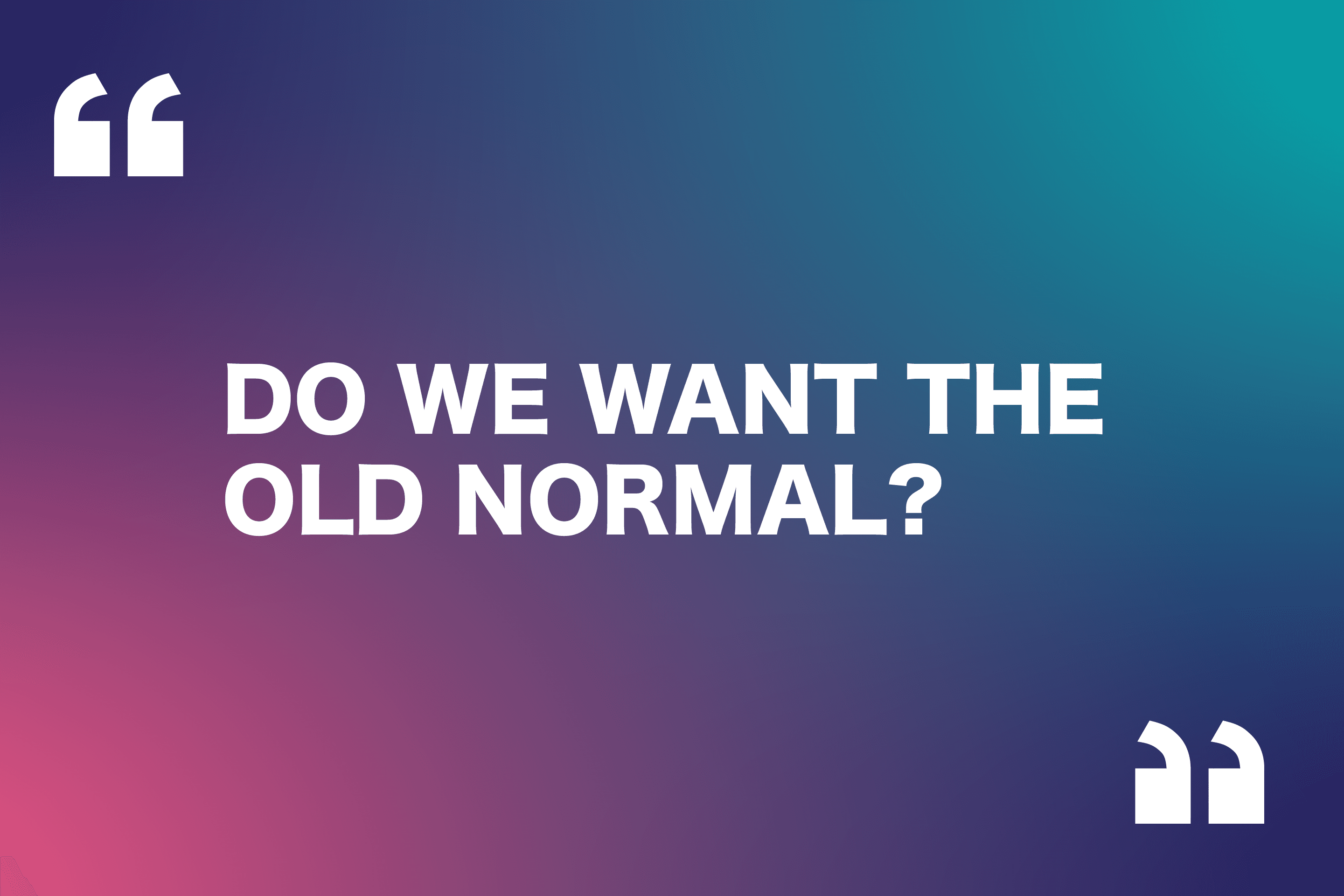
We ask such questions, but what did our "normal" look like before this?
Are we sure we want a carbon-copy of a world where
More than 700 million people still live in extreme poverty, including one in every five children with 22% more women than men.
By 2050, the equivalent of almost three planets could be required to provide the natural resources needed to sustain current lifestyles.
9 out of 10 urban residents breathe polluted air.
One million plant and animal species are at risk of extinction; that's 22% of all animals.
At the current rate of progress, it will take 108 years to close the gender gap.
Today, 20 million people are refugees, over 41 million people have been internally displaced, and at least 4 million people are stateless.
Families are less connected than ever, with an average of 7 hours spent staring at a screen.
Businesses have 87% of their employees disengaged, and 19% actively disengaged, undermining the company they work for.
Our connection with nature, the nature that provides us with air to breathe, water to drink, and food to eat is broken.
The list goes on. So do we want to get back to normal? Maybe the real challenge is to assess what we consider as normal. It was a pivotal moment when this external impact hit our society, but people had the time to take two steps back and think about what's really happening.
Think about it. The outbreak created an order of isolation for people to remain safe. Which means more time alone, with their thoughts and reflection.
The events above are our reality that began more than six months ago. But the pandemic was a time to put energy into something. Now we are understanding the world, and we stand by each other to inspire change.
So, Where to Go From Here?
Already, we can notice new trends. For starters, localism has become intense. It's the mayors, governors, and local groups who drive initiatives. It’s also the realization that global supply chains can break at any moment.
This is the reason for market shifts and business owners discovering new ways of working and offering services. We also see industries become multifunctional for customer value. Clothing lines went from producing summer trends to face-masks, which are the need of the hour.
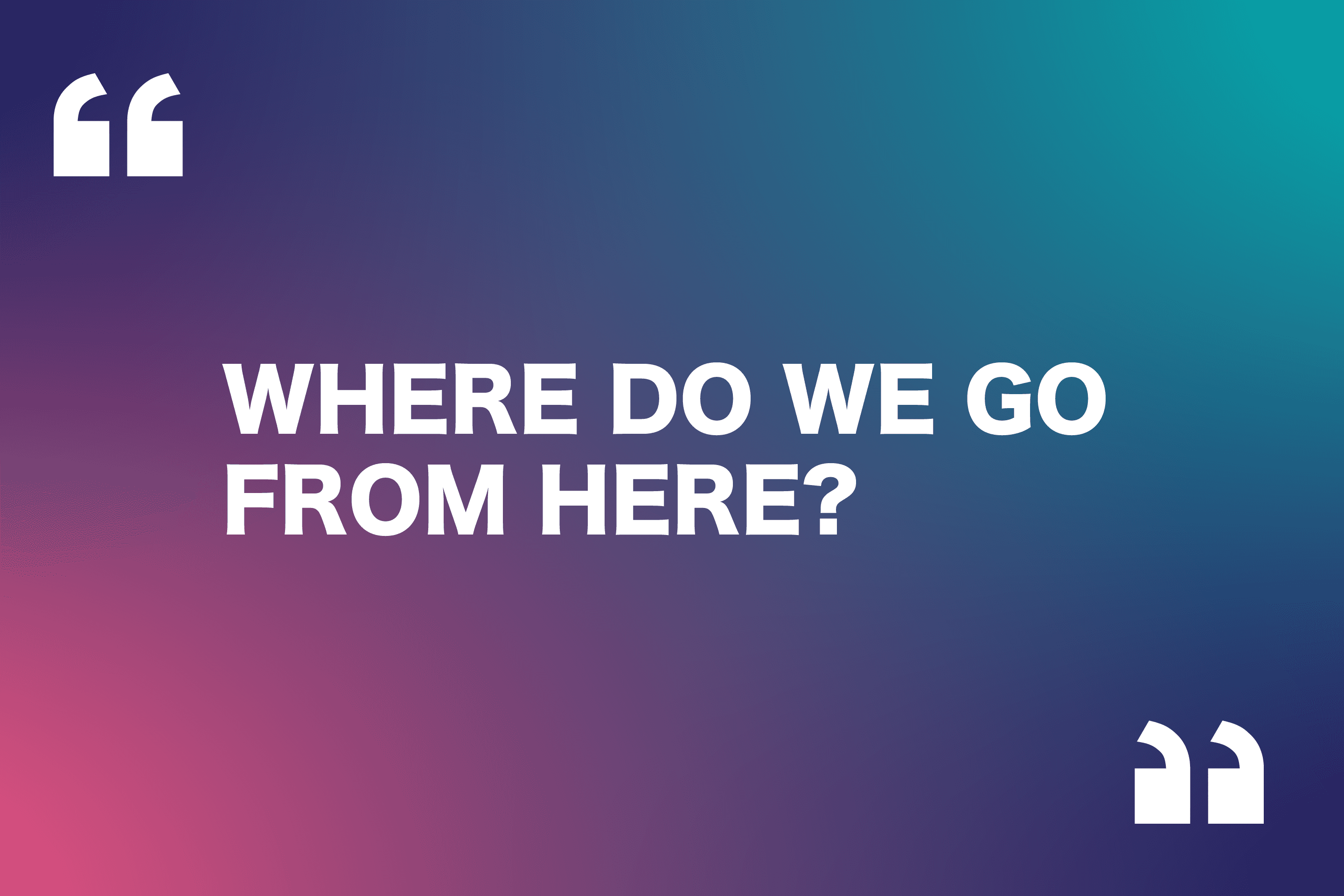
Takeaways for Businesses
These new trends make it easy to recognize what businesses can learn from each other. These are the main takeaways for businesses and what to ask to be better prepared.
- Recognizing what can become prairie fires when a crisis sparks
- What was hard about recognizing the current crisis?
- When did your business recognize the impact that the current crisis would have on your business?
- What can you do to understand crises earlier than you did this time? - Reaction times
- Could outcomes in your business have been better if you had reacted sooner?
- What were the barriers to reacting promptly during the crisis?
- What was hard about recognizing the current crisis
- When did your business acknowledge the impact that the current crisis would have? - Adaptability as a new core ability
- In your planning, have you considered the low-likelihood of high-consequence events?
- How much have you stretched your thinking/scenarios? - Jump into the new world
- Assume that all your income in the last few years will not bring you any revenue or customers in the next 18 years!
Takeaways for Individuals
Key takeaways for individuals are studying at what is evident during uncertain times. Because when uncertainty arises, everything that is important becomes clear. That's why getting together and discussing major topics builds a higher degree of honesty, truth, and humility.
Wherever there is an external crisis, there is a stimulus that triggers a response. Between the two, there is a space - our power to choose a response.
"In our response lies our growth and our freedom." Viktor Frankl.
Lastly, the biggest takeaway for individuals has been within these five resilience-building practices. These soft skills shouldn't be underestimated or underinvested but rather a big part of your routine.
Understand that wellbeing is not a hygiene factor but your key asset in life
Embrace uncertainty it equals curiosity
Know yourself and your patterns
Practice self-care
Build inner resilience: breathing, yoga, meditation, and Shaolin
Final Thoughts
The world is becoming complex and uncertain. Often, the problems we encounter aren't always transparent and straightforward. The same stands for our goals. Circumstances and people change, and this can make it hard to predict what to strive for.
That being said, we can't deny our old normalities any longer. The radical uncertainty of society arises when we know something, but feel as if we cannot act upon our thoughts with confidence. Global society will never progress unless we transform our mentality and begin taking action on the things we know are true. Everyone can have a voice if we unite together.
So instead of waiting for the new normal to fall into place, let's take action and create a better normal ourselves.
Thank you for joining us for our first-ever Space.Talk webinar series. Over the duration of six weeks, we had over 2500 people attend from more than 40 countries. We couldn’t have made this happen without our collaborators Harbour.Space@UTCC and Barcelona Activa, and without the support of the Thai Chamber of Commerce, YPO, True Digital Park, and ThaiBev. Most importantly, a big thank you to all of our industry-leading speakers who make technology and design what it is today. We’re looking forward to building on this start with more events. Keep an eye out for updates on our social media :) If you’re interested in further growth over any of the related topics, take a look at our website to learn what your future could look like at Harbour.Space. Lastly, get in touch with us at hello@harbour.space to let us know your thoughts!
Thanks for reading
If you’re interested in further growth, take a look at our website to learn what your future could look like at Harbour.Space. Lastly, get in touch with us at hello@harbour.space to let us know your thoughts!
